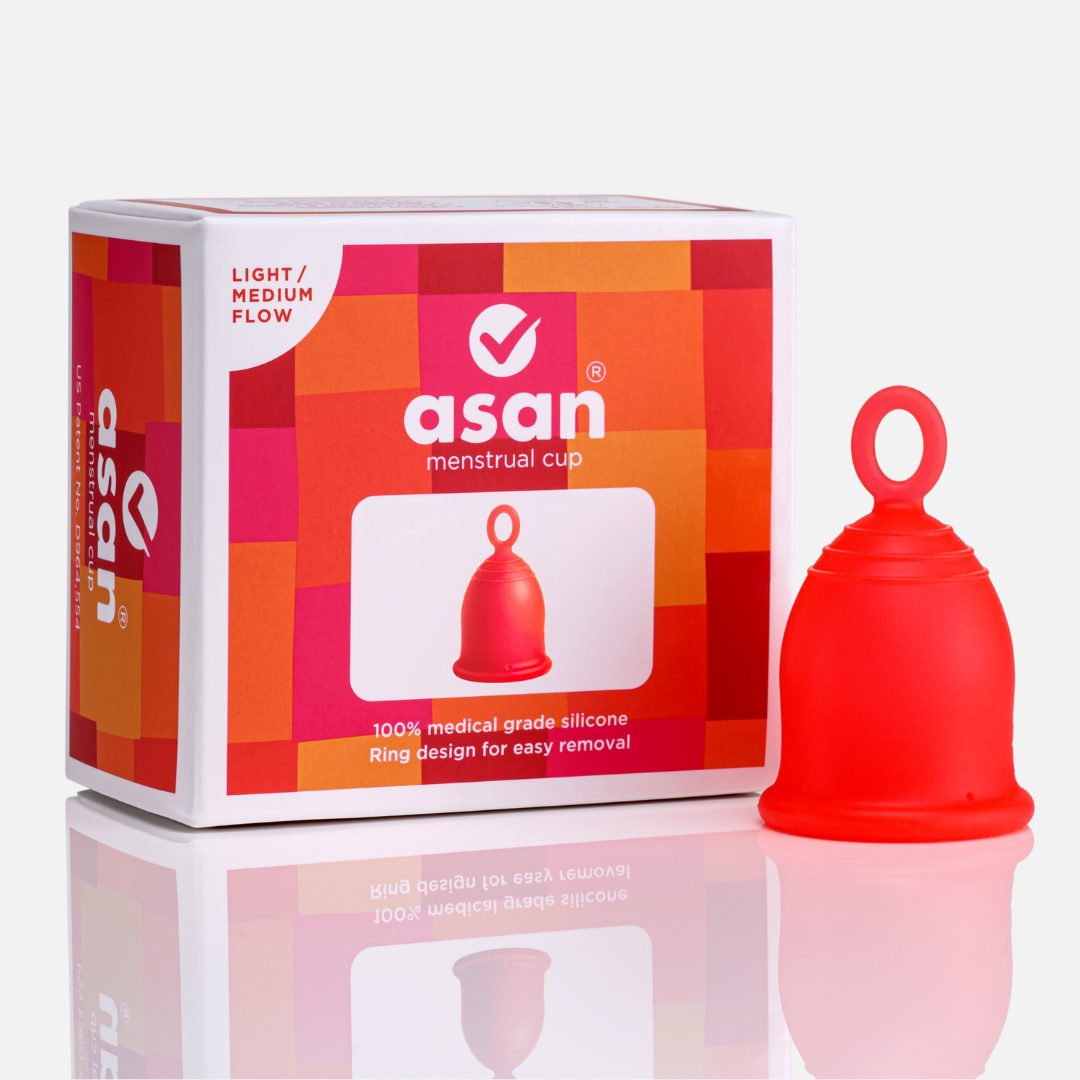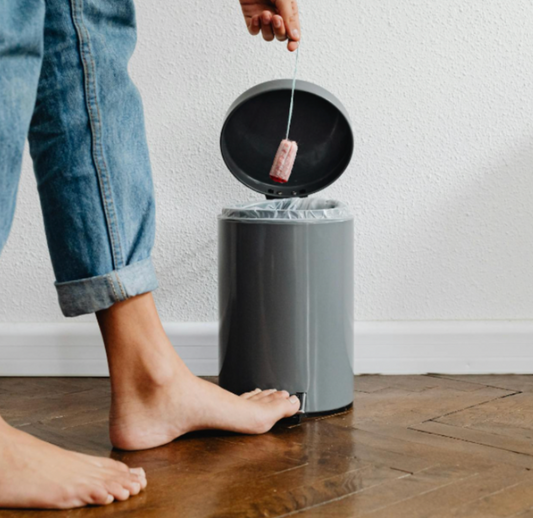
Do you feel the urge to pee every time you insert your menstrual cup? But when you go to the toilet you realise you don’t actually need to use the loo?
If you are familiar with this feeling, you may be someone with a sensitive bladder.
Having a sensitive bladder can make it difficult to get through the day without many trips to the bathroom. While a sensitive bladder can get in the way of your work, exercise and sleep, it is a very common condition amongst all genders and can be managed.
This blog will go through everything you need to know about this condition and what is the best menstrual cup for a sensitive bladder.
what is a sensitive bladder?
Your bladder is a balloon-like muscular sac that holds your pee until it’s time to go to the bathroom.
A sensitive bladder, or a condition known as Overactive bladder (AOB) is when you frequently experience an urge to pee and can’t control it.
AOB causes a frequent and sudden urge to urinate that may be difficult to control. You may feel like you need to pass urine many times during the day and night, and may also experience unintentional loss of urine.

what causes a sensitive bladder?
There can be many reasons that you have a sensitive bladder. While it is more common in ageing populations, anyone in the menstruating age can also experience this condition.
A few possible causes can be:
- Weak pelvic muscles
Having weak pelvic muscles can result in the inability to properly relax and coordinate your pelvic muscles for urination and bowel movements.
Pregnancy and childbirth can also cause your pelvic muscles to stretch and weaken - causing your bladder to sag out of its normal position.
2. Nerve damage
Your body stores urine in your bladder and when it’s full, nerves tell the muscles around your bladder that you need to push the urine out.
Sometimes the nerves in this process can be damaged through trauma or diseases. If this happens, sometimes signals from your bladder to your brain are sent at the wrong time which can cause pee leaks.
3. Excess caffeine or alcohol
Too much caffeine or alcohol can irritate the tissues in your bladder and cause nerve damage to the nerves that control your bladder movements. This can directly lead to involuntary bladder contractions and developing a sensitive bladder.
how do i manage my sensitive bladder?
You can manage your sensitive bladder through some simple lifestyle changes.
This involves reducing your caffeine and alcohol intake, doing pelvic floor exercises regularly to strengthen your pelvic muscles, and maintaining a high fibre diet to prevent constipation.
can a menstrual cup cause a sensitive bladder?
A menstrual cup cannot cause you to develop a sensitive bladder. However if you already have a sensitive bladder, then a menstrual cup may trigger your sensitive bladder.
Many people have asked us, does a menstrual cup exert pressure on my bladder?
As your bladder is positioned right behind your uterus, it is possible for a firm or large menstrual cup to apply pressure on your bladder and cause some discomfort.
how do i know if i have a sensitive bladder while using a menstrual cup?
Have you peed recently but are still feeling the constant urge to use the loo? Do you feel like your menstrual cup is pushing on your bladder? Then you might have a sensitive bladder.
When a menstrual cup is sitting inside your vaginal canal to collect your period flow, it can sometimes feel like the menstrual cup is pushing down on your bladder. This pressure can make you feel like you need to pee all the time!
If you feel like your menstrual cup is hurting your bladder, then remove it immediately. If the pain continues, please consult a doctor.
can i use a menstrual cup if i have a sensitive bladder?
Yes absolutely! Having a sensitive bladder does not mean that you can’t use a menstrual cup.
It is just important to do your research and choose a cup that is designed to ensure that your bladder will not experience pressure from a menstrual cup.
what is the best menstrual cup for a sensitive bladder?
To ensure that you don't constantly experience the urge to pee, you should use a menstrual cup that is slightly on the softer, flexible and smaller side.
While a soft cup won’t put pressure on your bladder, it is important to choose a high quality menstrual cup that will still maintain a seal once it is inserted so you don’t leak on your period.
Asan’s light/medium flow cup is the best menstrual cup for bladder sensitivities. It is super soft and will comfortably sit inside your vagina without putting any pressure on your bladder.
The cup has been engineered with three air holes on the rim to ensure that suction is maintained and the cup remains in place when you are bleeding.
To learn more about how the unique design of the Asan cup will ensure that you can use the cup if you have a sensitive bladder, visit our page on design and quality standards.

how do i know if my menstrual cup is in the right position?
Your cup should be inserted towards your tailbone and sits at the base of your vaginal canal.

To ensure that your Asan cup has been inserted correctly, you should hear a ‘pop’ when the cup opens and creates a seal inside you. You can gently tug on the ring to test whether the suction has been created.
If you can’t easily pull the cup out and you can’t feel it inside you, then you have inserted it correctly.
Read this blog on everything you need to know about inserting a menstrual cup.
can I pee with a menstrual cup inside me?
Yes absolutely! We have three different entrances in our pelvic region: the vagina (where your period blood comes from), the urethra (where you pee from), and the anus (where you poo from).
As a menstrual cup sits inside your vagina, it does not need to be removed when you pee. Read this blog on peeing with a menstrual cup inside you to learn more.

So are you ready to try the best menstrual cup for your sensitive bladder? Shop here now.




